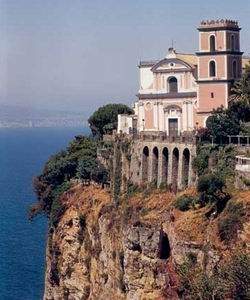 |
| Porta return |
| Chronology |
| Scientists index |
| Bibliography |
Giambattista della Porta | ||
Vico
Equense (Napoli) 15.November.1535- Naples
04.February.1615 |
||
|
|
Biographical
notes |
|
He
was
philosopher, scientist and writer of comedies. Its first
interests addressed to the study of the natural magic, and found one
partial expression in the Magia
naturalis sive de miraculis rerum naturalium,
printed publication in 1558. The work was uniform in four parts and was
consecrated to surveying of the principles generates them of the
nature, that is to the rules of sympathy and aversion that, to judgment
of the author, dominated to the course of all the things, and to the
analysis of some physical and chemical phenomena.  The dissatisfaction for the resolution of the work pushed Of the Door to try of one radical review, duration nearly thirty years, until 1589 - given of the second and definitive edition -, in a continued effort of review and improvement of the juvenile theories. This time the work came uniform in twenty books and accommodated also defended wounding deeply against the magic accusations that it had been turned from various parts. A special position in the new edition occupied also the optical issues, accommodated in wide and innovative book XVII. In the last years of its life Of the Door third edition of the Magic worked also to one naturalis, renamed Taumatologia and remained unfinished. While in 1563 literarum was appeared the entitled treaty De furtivis literarum notis vulgo de zefiris, and in the 1566 Art of remembering. The spread of these works increased a lot the reputation of Of the Door in the republic of letters, and in 1579 he it received I invite it of cardinal Luigi d' Este to o to Rome. In the course of 1580, for order of its new master, it was moved to Venice in order to supervise to the fabrications of some optical instruments, making the acquaintance also of Paul Sarpi who introduced it to the studies on the magnetism. Returned to Naples, Of the Door it made to print two operettas of agriculture, to which they followed in the 1586 and the 1588 De humana physiognomia, the Phytognomonica and a comment to the "Almagesto" of Tolomeo. During same 1588, however, it came hit from one anonymous denunciation and subordinate to a process from part of the Inquisition with the accusation to practice to the occultism and the magic. Between 1589 and 1590, in spite of the vicissitudes, visited Tommaso repeatedly Little bell. In 1592, while to Frankfurt the natural encyclopedia in twelve books exited entitled Villae and for Naples the press of the De was prepared refractione, its vulgar version of the humana De Physiognomia came hit from the press prohibition. The work, to which it to along had worked, could see the single light in 1598, introduced with the pseudonym of Giovanni De Rose. Only exceeded in part the difficulties with the ecclesiastical censorship, Of the Door it published between 1602 and 1603 also ' Ars reminescendi, i Pneuticorum books tres and the six books of Coelestis physiognomoniae . In the 1604, by now old one, Della Porta knew Federico Cesi to Naples exile from Rome and with he he meditated the plan to renew in the Parthenopean city the press Academy of the Members of the Accademia dei Lincei. In 1608 just Cesiums it made to print to Rome the De distillatione and in the 1610 De aeris trasmutatione, the last scientific work of Of the Door, to the inside of which numerous problems of meteorology and climatology were discussed. After the annexation to the Academy of the Members of the Accademia dei Lincei the controversy with Galileo for the acknowledgment of the invention of the telescope was taken place. Also recognizing to the from Tuscany mathematician the merit of an application it originates them of the new instrument, Of the Porta wrote up a treaty-memorial, that it remained unknown and she entitled De telescope, with which she reconstructed the various ones is made of the preparation of the instrument. The Neapolitan naturalist compiled also a great number of tragedies and commedie that came more times put in scene in the theaters of all Italy and collected one conspicuous fortune. |
||